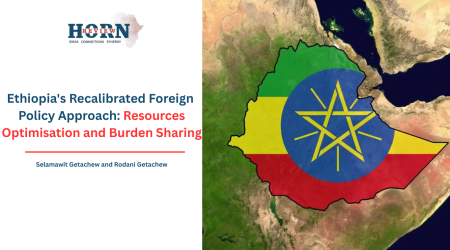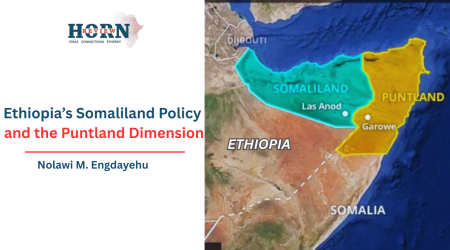
27
Jan
Sudan’s Crisis Spills Over: Ethiopia Grapples with Refugee Surge and Security Threats
Sudan is currently grappling with a severe crisis marked by political instability, escalating armed conflict, and a growing humanitarian disaster. Years of authoritarian rule and failed democratic transitions culminated in the 2021 military coup, which derailed hopes for reform. The power struggle between the Sudanese Armed Forces (SAF) and the Rapid Support Forces (RSF) has erupted into violent conflict since April 2023, paralyzing governance and deepening ethnic and tribal divisions, particularly in regions like Darfur, Kordofan, and Blue Nile. These internal divisions, exacerbated by militia groups, have led to widespread violence, ethnic cleansing, and the destruction of infrastructure. The crisis has forced millions of Sudanese to flee their homes, creating one of the most dire humanitarian situations in the region.
The fallout of Sudan’s instability is not confined to its borders; it has sent shockwaves through neighboring countries, particularly Ethiopia. Since the onset of the conflict, over 2.2 million Sudanese refugees have fled into Ethiopia, seeking refuge in areas like Benishangul-Gumuz, Amhara, and Tigray. This surge in refugee numbers has put immense strain on Ethiopia’s already overburdened refugee infrastructure, which supports populations from Eritrea, South Sudan, and Somalia. Humanitarian organizations report severe shortages of food, water, healthcare, and shelter, further worsening the conditions for both refugees and host communities.
The refugee crisis has also intensified security concerns in Ethiopia’s western border areas. Armed groups, possibly linked to the SAF and RSF, have reportedly begun recruiting from among the refugee populations, contributing to instability in these regions. Additionally, competition over limited resources between local Ethiopian communities and refugees has led to periodic outbreaks of violence, further complicating the situation.
Beyond the humanitarian impact, Sudan’s instability has disrupted Ethiopia’s trade routes, especially in the border regions that serve as critical links for cross-border commerce. This disruption has increased prices and caused shortages of essential goods, compounding Ethiopia’s existing economic challenges. The ripple effects of this instability threaten to push both countries toward a deeper crisis, with food insecurity becoming an even more pressing concern.
Sudan’s crisis, now spilling into Ethiopia, underscores the interconnectedness of conflicts in the Horn of Africa. The refugee flows, security threats, and regional instability highlight the urgent need for coordinated action to address Sudan’s turmoil. Stabilizing Sudan is not just vital for the country’s recovery but for the peace and stability of the entire region.
By @Tsegaab_A, Researcher at Horn Review










